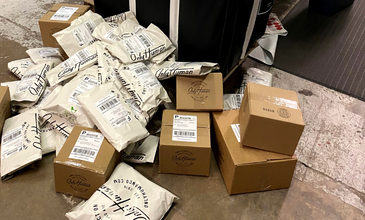Talking To Kids About COVID-19

Our kids are hearing more and more about the coronavirus (COVID-19) and knowing what to say to them can be tough. We want to offer you some quick tips for talking to your kids about the virus. We encourage you to start by asking them what they've already seen, heard, or think they know in order to gauge their knowledge base. Our intention is for you to meet your kids where they're at with the situation, and then create a feeling of security and safety for them.
1. Deal with your own anxiety
You have to put your oxygen mask on before you can help anyone else. Kids can sense your emotions ,and when you begin to feel panicked they will feel panicked, too. It’s important that you find ways to mindfully calm yourself in order to create a serene space for learning for everyone involved—no matter the age level.
2. Be honest
Ask them how they’re feeling and if they have any questions about what is happening. Then be prepared to answer their questions with honesty, but only give the amount of detail that they are interested in. If you don't know an answer, it's okay to admit that. In these times it’s important to create a space to allow children to share their fears so that you can be aware of them and help to alleviate them as much as possible. Using the information we know, mentioning that kids don’t seem to get as sick could help them to feel more secure.
3. Help them feel in control
Give them tasks during this time that they can focus on and own. Some examples could be washing their hands, getting enough good sleep, continuing their educational activities at-home, and keeping a healthy mental and physical state.
4. Don’t quit talking to them
It's imperative to keep checking in and asking how they feel about what they may see, hear, or experience during this time. Ask what they think about things and how they think stuff like this happens. Talk to them about how you're feeling and the things you are doing to stay healthy. Even if these conversations seem tough or uncomfortable, it's much better to continue talking then to avoid them.
5. Stick to your routines
Staying in a similar routine to what kids are used to is important - ESPECIALLY if their school has closed. Try not to let them get out of routine by sleeping in late or going to bed later than usual every day. Set up chores and/or education activities and use charts to track them. If you’re looking for academic resources and mindful activities you can do with your kids be sure to check out our At-Home Education COVID-19 Resources. Staying in a routine not only helps their mental state, it will also be beneficial when schools reopen.
External links & resources:









